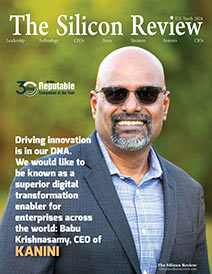>>
Technology>>
Mobile>>
ReFlex is the world’s first ...ReFlex is the world’s first Bendable Phone
The Silicon Review
22 Febuary, 2016
Remember the infamous bendgate issue that occurred with iPhone 6 Plus in 2014? What if there was a phone that could be bent and still work without any issues? LG with its GFlex series had come close by producing curved phones. But no company could come up with a bendable phone due to many limitations, until now.
Academics at Queen’s University have designed the world’s first bendable phone name ReFlex. It was created with a 720p LG flexible OLED touch screen, Android’s KitKat, and a haptic actuator to detect the phone bending and provide feedback to the user. The result is a phone that bends not just because it’s pretty, but because it’s useful.
“This represents a completely new way of physical interaction with flexible smartphones,” said Roel Vertegaal, who worked on the project at Queen’s. “When this smartphone is bent down on the right, pages flip through the fingers from right to left, just like they would in a book. More extreme bends speed up the page flips. Users can feel the sensation of the page moving through their fingertips via a detailed vibration of the phone. This allows eyes-free navigation, making it easier for users to keep track of where they are in a document.”
Gaming is also fun as the bendable feature of the phone can be used to play games. This is highly evident in games like Angry Bird where the user bends the phone to launch the bird in to the air.
Sensors behind the display sense the force with which the user is bending the screen, and gives that data to apps for use as an input. ReFlex also has a voice coil, which, the researchers say: “allows the phone to simulate forces and friction through highly detailed vibrations of the display. Combined with the passive force feedback felt when bending the display, this allows for a highly realistic simulation of physical forces when interacting with virtual objects.”
The researchers believe there are greater uses for the technology other than playing games and reading – in particular navigating through long lists or websites. However, those hoping for a new iPhone or Android to be controlled by bend will be waiting a while yet. The creators said it would be at least a “couple of years” until the technology would be possible for commercial use.









